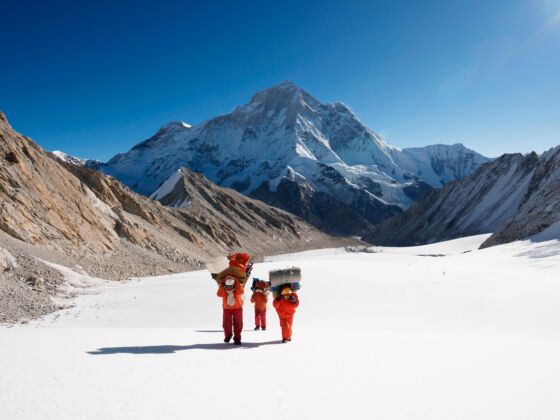FOR MOST OF the journey, we drank Everest beer.
And although our porters were always glad to kick back the brews that those of us on the Adventure Center-organized trip bought them at each day’s end, it was Shyam, the stocky one who only brought one shirt for the entire trek, who suggested I try the rakshi.
